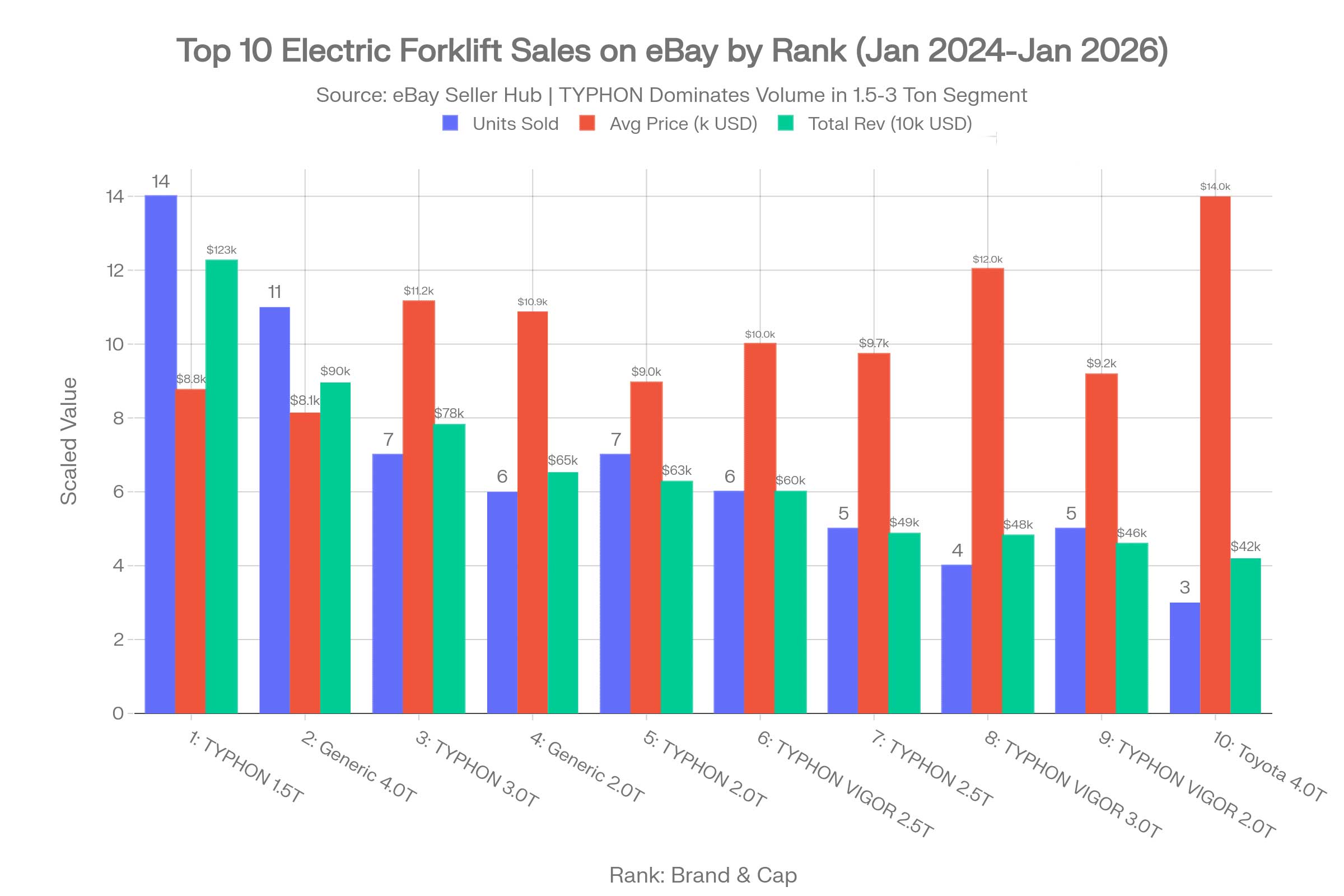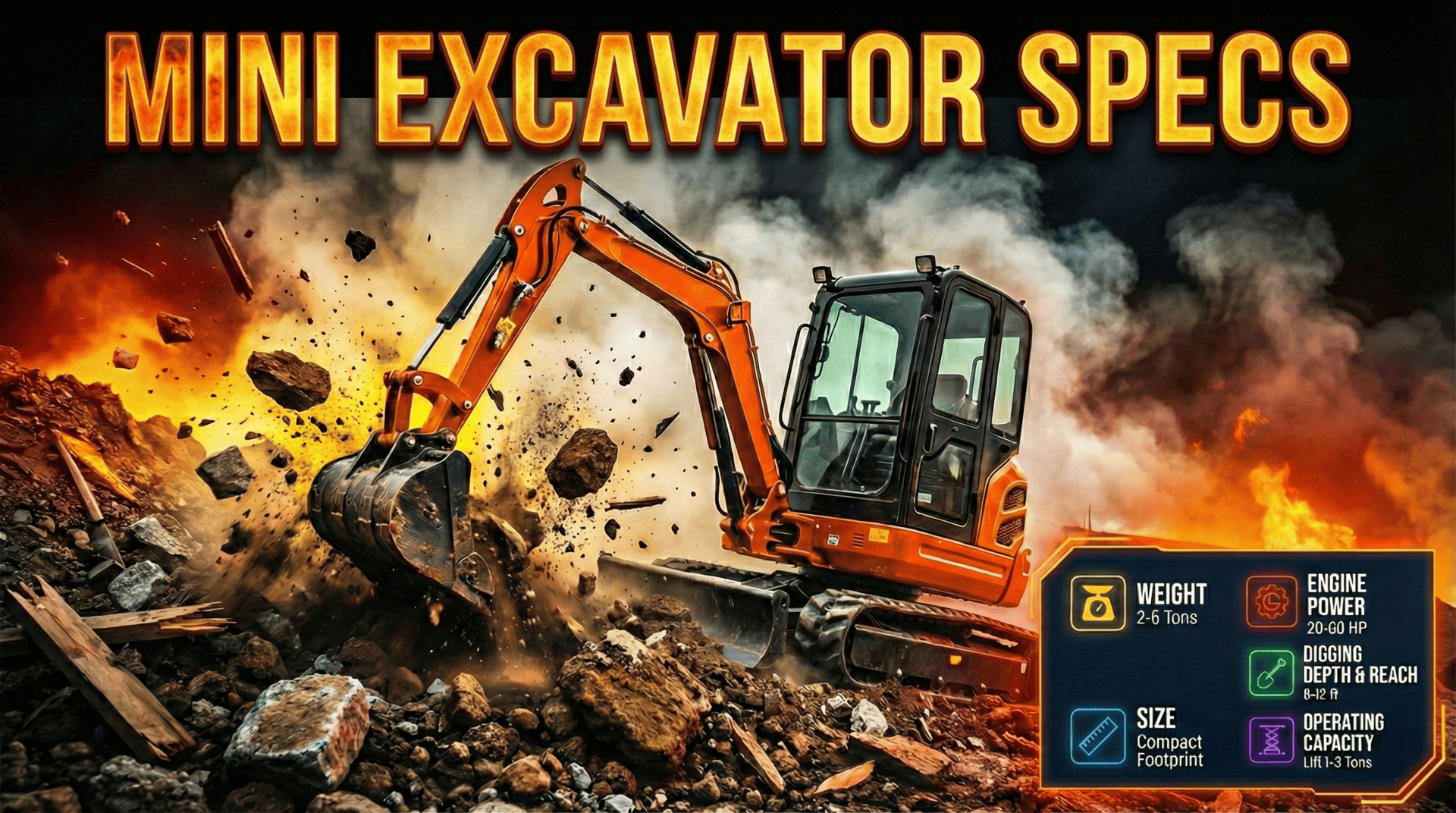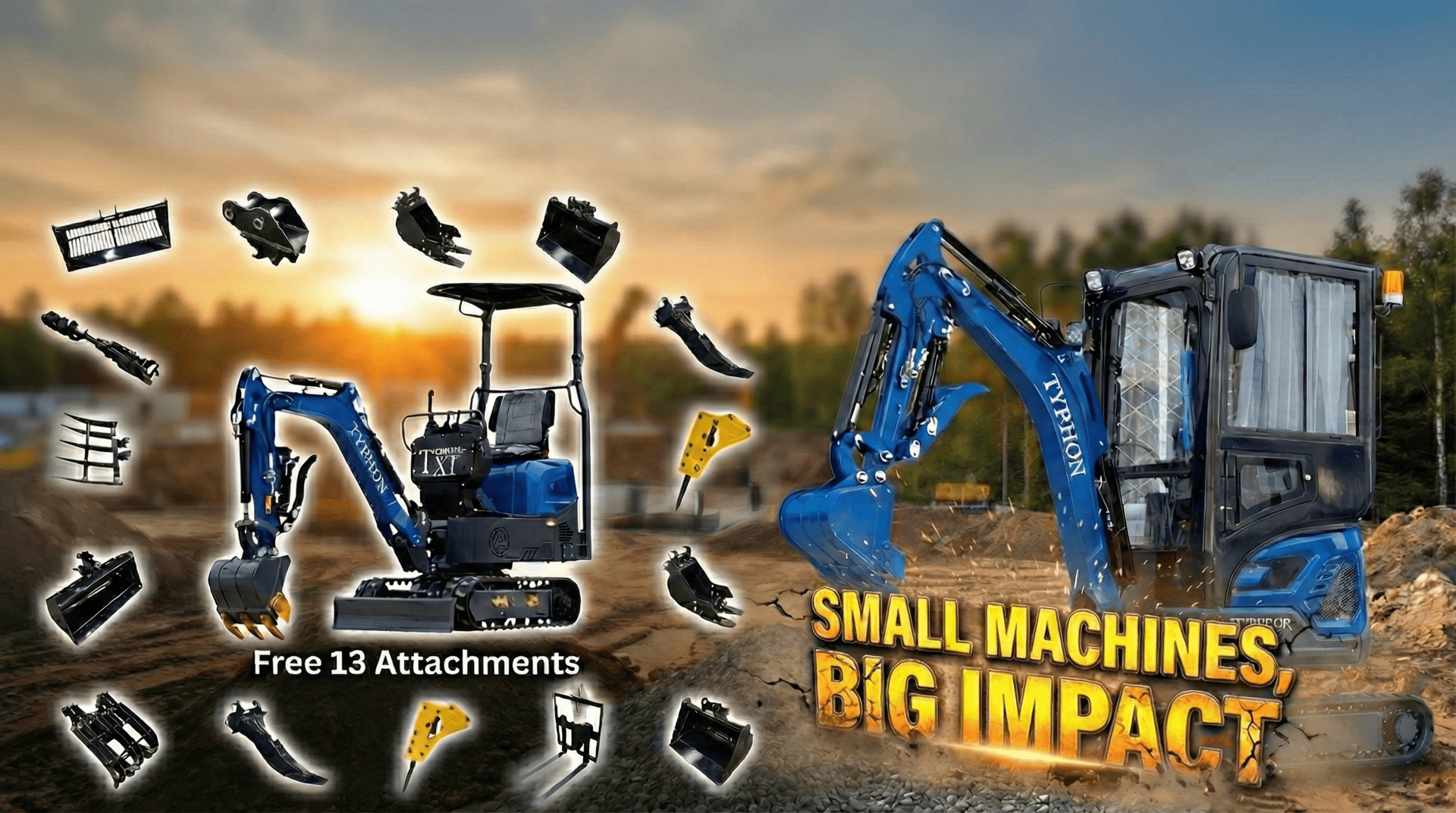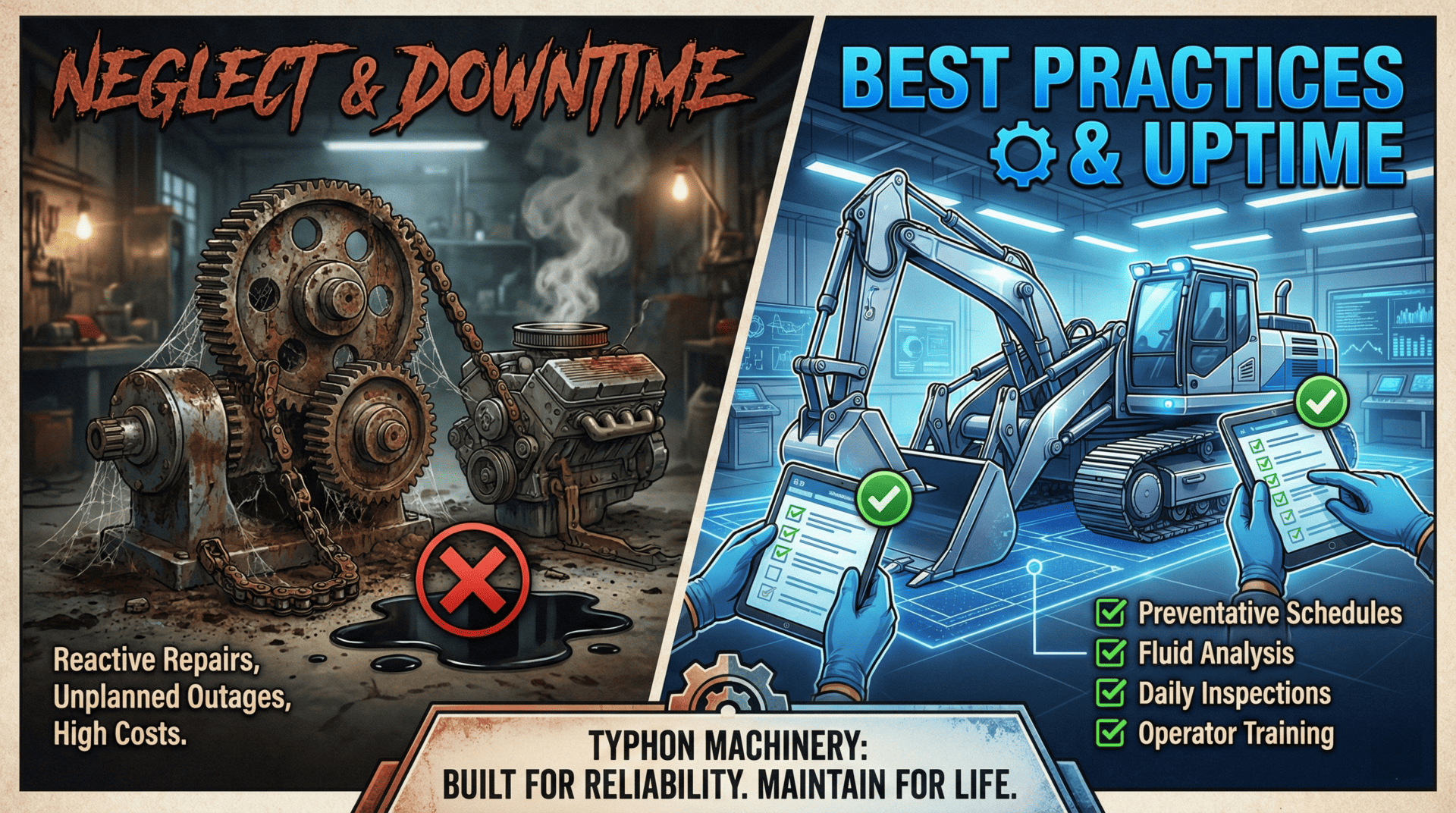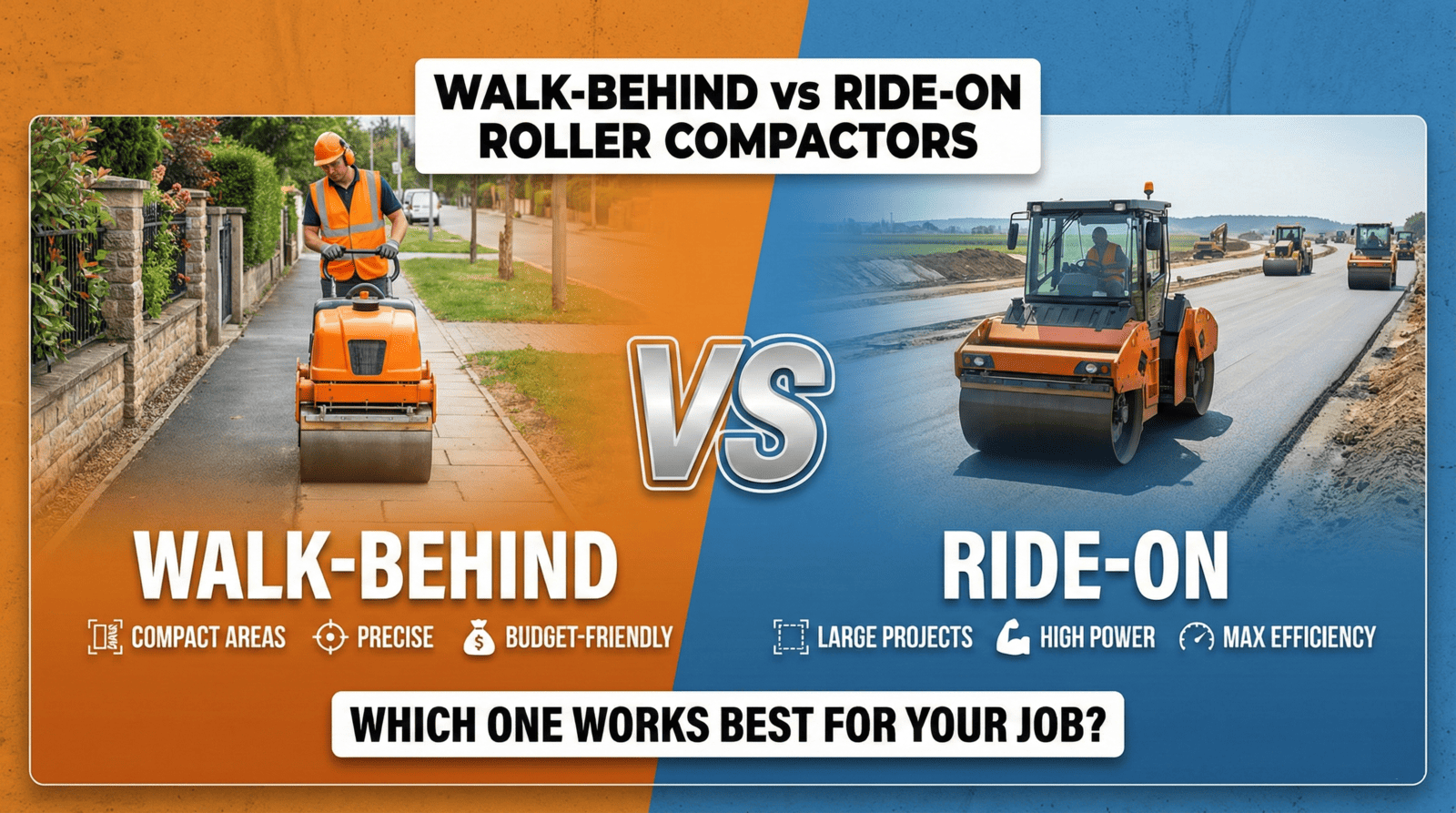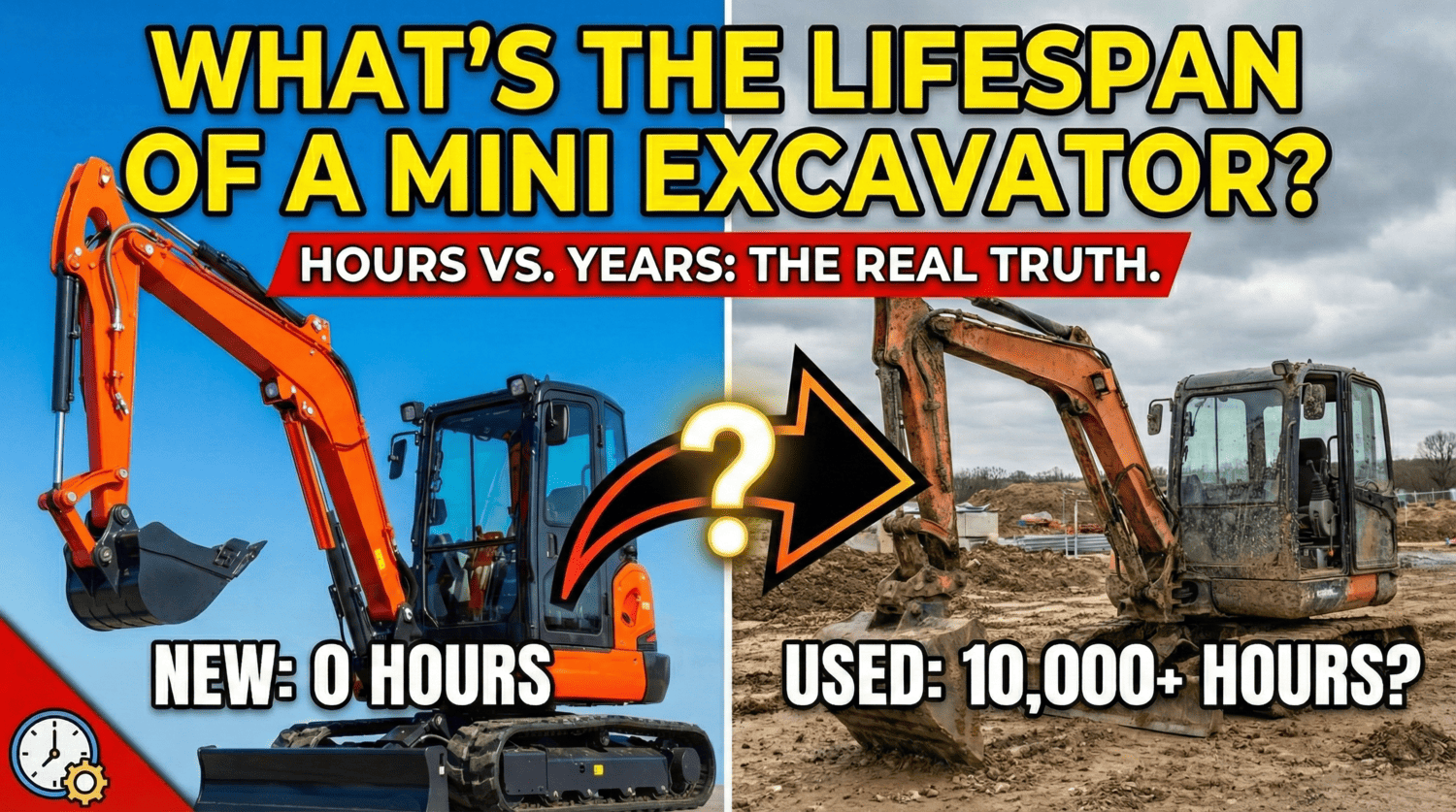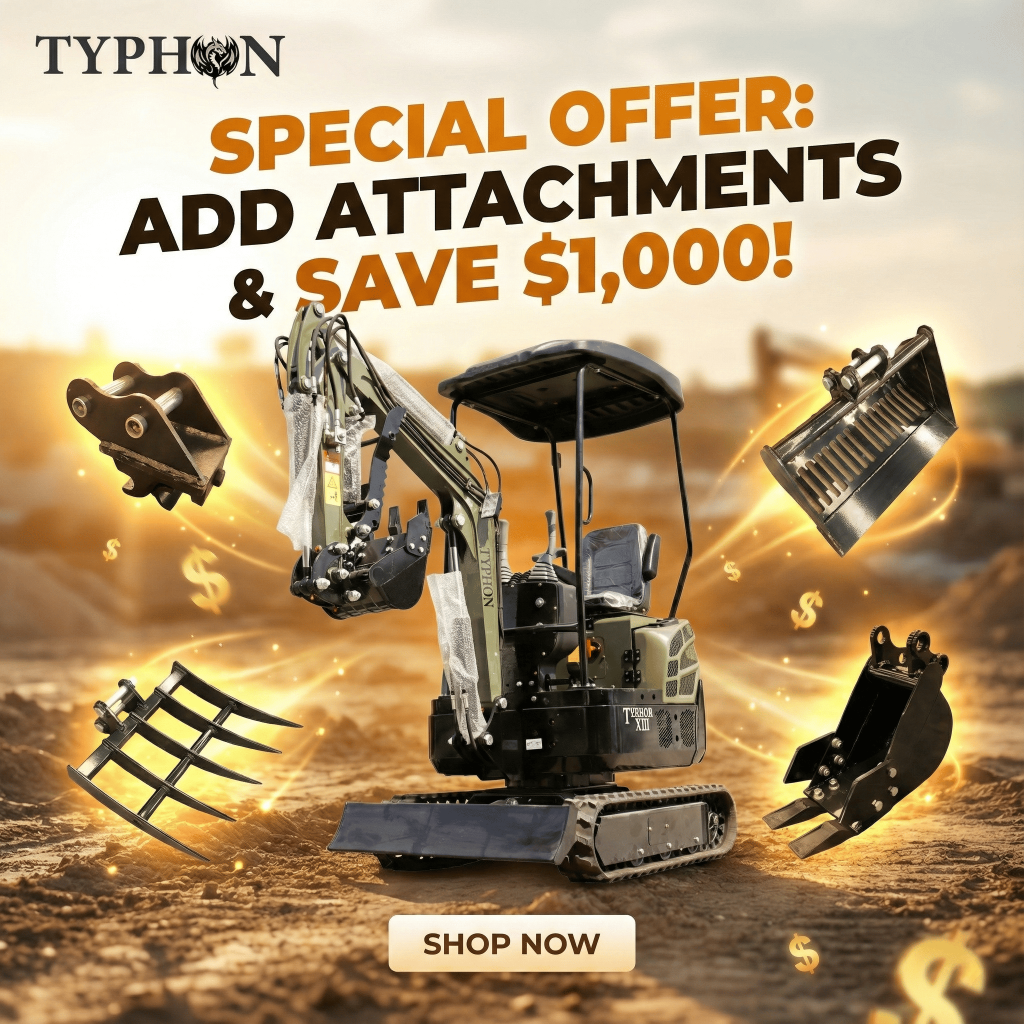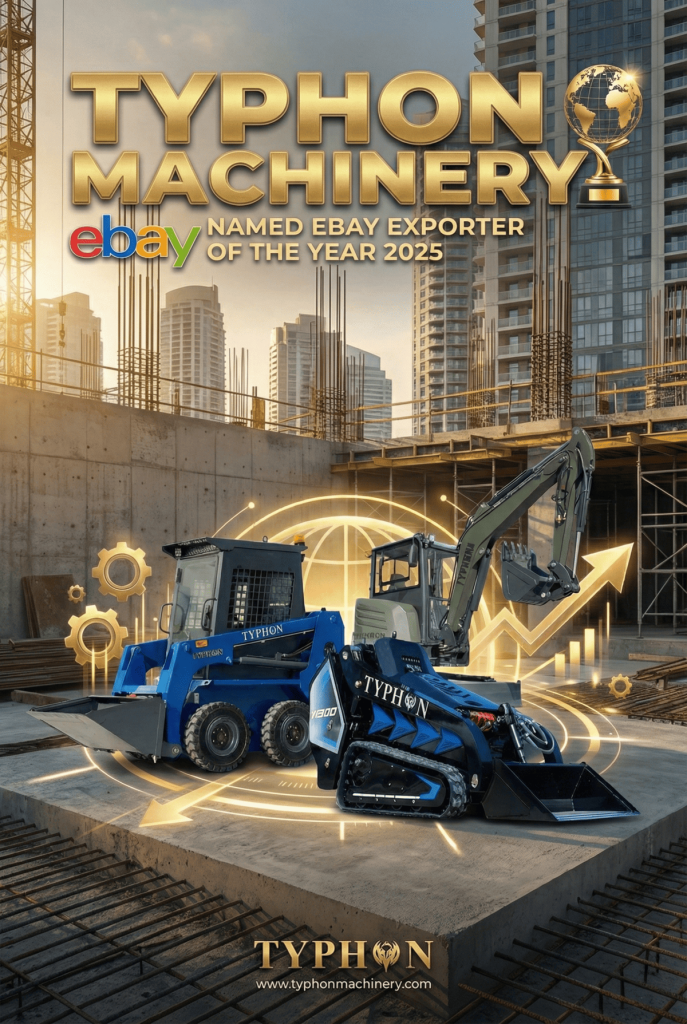Mini Excavator Guide : Though they are little, mini excavators have great impact in the fields of gardening and building. Knowing your way around these little powerhouses is crucial whether your project is building pools, excavating foundations, or demolishing minor buildings. Your one-stop source for knowledge on all aspects of mini excavators—from sizes to specs across several manufacturers—this guide.
Why Mini Excavators are Game-Changers
Mini excavators, sometimes called mini ex, compact excavators, or small diggers, have become indispensible on building projects in recent years. Their adaptability and efficiency over a range of chores are driving their explosive appeal. Mini excavators provide a mix of ease and utility unparalleled by bigger equipment for builders, landscapers, and do-it-yourselfers alike.
We will lead you through the key characteristics of small excavators in this extensive overview. We will discuss several brands, evaluate their characteristics, and offer analysis on why any project would find these devices a must-have. By the conclusion, you will be well-versed in knowing which little excavator would best fit your need.
The Importance of Understanding Mini Excavator Specifications
Knowing the specs is quite essential when selecting the correct little excavator. It’s about knowing what each model provides and how it fits your project criteria, not only about selecting the first machine you come across. Whether you are renting or buying, this guide will dissect the typical sizes, models, and features of leading mini excavator companies so you may decide with knowledge.
How Much Do Mini Excavators Weigh?
Weight is a critical factor when selecting a mini excavator. These machines generally have operating weights between 2,000 to 22,000 pounds, or 1 to 11 tons. They are typically categorized into three sizes:
- Small Mini Excavators: Weigh between 2,000 and 10,000 pounds. They are ideal for light-duty work such as garden projects and minor excavation tasks.
- Medium Mini Excavators: Range from 10,000 to 18,000 pounds, suitable for more intensive construction tasks.
- Large Mini Excavators: Weigh over 18,000 pounds, offering robust performance for heavier-duty construction projects.
Understanding the weight categories helps in selecting the right excavator for the job, ensuring efficiency and safety.
Weight, Specs, and Size Charts for Every Brand of Mini Excavator
Different brands offer a range of mini excavators, each with unique specifications and capabilities. Here’s a deep dive into some of the most popular ones:
Bobcat
Renowned for its wide range of micro excavators, Bobcat serves small- and medium-sized projects. Bobcat guarantees you discover the best match for your project with choices like the E35 with long arms for extra reach. For small areas, they have zero tailswing versions; for projects needing additional stability, they have traditional tailswing.
- Bobcat E10 weighs 2,593 pounds, ideal for confined spaces with zero tailswing.
- Bobcat E88 is the heaviest at 19,600 pounds, designed for more demanding tasks.
Bobcat’s electric models, E10e and E19e, are perfect for indoor work with zero emissions and reduced noise.
CASE
Although CASE has a smaller lineup compared to other brands, it doesn’t compromise on quality. Their models are designed for operations in confined spaces, making them a popular choice for urban projects.
- CASE CX15EV, weighing 3,186 pounds, is their lightest model, suitable for indoor jobs with zero emissions.
- CASE CX60C is the heaviest at 13,760 pounds, offering significant power with zero tailswing.
Caterpillar
Caterpillar (CAT) offers a wide selection of mini excavators, suitable for small landscaping to medium-sized roadwork projects. Their models with “CR” indicate a compact radius, perfect for tight spaces.
- CAT 300.9D is the lightest model at 2,399 pounds, great for small digs.
- CAT 310 at 22,451 pounds, is designed for larger, more intensive projects.
Develon (formerly Doosan)
Develon provides a range of mini excavators, including large-class machines. Known for their horsepower, they offer zero, reduced, and conventional tailswing models for various project needs.
- Develon DX17Z-7, weighing 4,211 pounds, is perfect for small projects with zero tailswing.
- Develon DX89R-7 weighs 21,025 pounds, suitable for larger, more demanding tasks.
The Most Important Mini Excavator Specs
Several specifications determine the functionality and efficiency of a mini excavator. Here are the key specs to consider:
Operating Weight
The operating weight affects mobility and stability. Lighter models are easy to transport and maneuver, while heavier models provide better stability for intense tasks.
Dig Depth
Dig depth is crucial for excavation projects. Ensure the model you choose can reach the required depths for your project.
Dump Height
The dump height determines how high the excavator can lift materials, important for loading trucks or disposing of debris.
Engine Power
Engine power impacts the overall performance. Higher horsepower means more power, essential for challenging jobs.
Machine Width
Width affects accessibility—narrow machines can access tight spaces, while wider models offer more stability.
Tailswing
Zero tailswing models are ideal for confined spaces, while conventional tailswing provides better balance for heavy lifting.
How Much Do Mini Excavator Attachments Weigh?
Attachments enhance the versatility of mini excavators. From buckets to augers, each attachment has its own weight, impacting the overall machine performance. Understanding these weights helps in optimizing efficiency and maintaining safety standards.
Renting a Mini Excavator
Renting a mini excavator is a cost-effective solution for short-term projects. It allows you to select the right model without a long-term commitment. Consider the scope of your project, duration, and specific needs when renting to ensure you choose the best machine for the job.
Conclusion: Mini Excavator Guide
Powerful tools with many uses in gardening and building are mini excavators. Knowing the several brands and features guarantees you choose the correct tools for your work. Achieving the greatest outcomes depends on knowing your mini excavator specs regardless of your level of experience or inclination toward do-it-yourself projects. Examine the choices, weigh your needs, and boldly begin your next major project.


